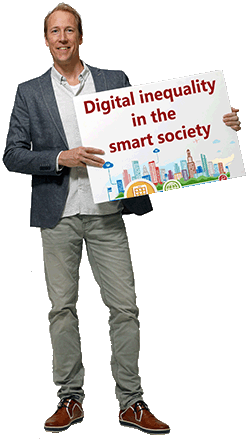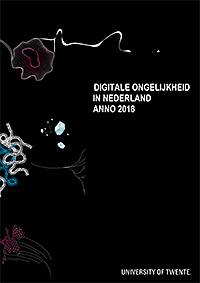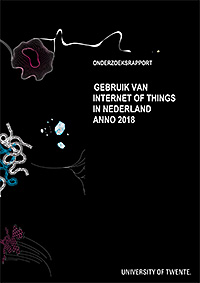Any Thing for Anyone?
Project website: www.anythingforanyone.nl
Granted by NWO VIDI scheme
Declining wages, financial handouts to banks, austerity programs in social spending and the transfer of the tax burden to wages are all commonly cited reasons for the recent growth of social inequality. Given the vast body of literature on the digital divide — which typically studies how different social groups access technology — it is remarkable that the role of technology is rarely mentioned in political discussions about social inequality. Nevertheless, recent studies have revealed that inequalities in access to technologies accelerate existing social inequalities because human capital carries over to the online world; technologies offer more capital-enhancing opportunities for those of higher socioeconomic status. Furthermore, when technologies become more complex, comparative advantages increase, enabling smaller groups of people to benefit.
Following this reasoning, it is crucial to study the most recent phase of technological development: the complex Internet-of-Things (IoT). IoT examples include: personal items such as glasses, medical devices, and wearables (from fitness trackers to baby socks); the smart home (e.g., digital assistants such as Google Home, smart thermostats, boilers, light bulbs, home security, fridges, televisions etc.), connected car systems (evolving into autonomous vehicles), and smart communities where electricity grids, traffic systems, and street lights incorporate sensors and collect data continuously. There are many potential benefits for individuals and for society. Smart devices can empower individuals through information — with data that helps them to make better decisions about, for example, energy usage or health practices. Additionally, the production of big data from the many sensors and devices is a public good that can be used by policymakers for critical decisions.
Many of the possibilities enabled by IoT that are emphasized in popular media seem techno-utopian promises that stress the autonomous power of the technology. However, deterministic promises often fail to achieve the predicted positive effects. So far, behavioral factors that are necessary for understanding the impact of the IoT have been ignored. The social sciences have not really contributed to the development of the IoT and we know little about the key driver for using the IoT: user skills needed to fully exploit technologies, or to avoid problems. The ability to realize potential IoT benefits depends in part on the knowledge, skills, and informed use of individuals and appropriate public policies to foster greater transparency and control of information, and to safeguard privacy and security. This is not a simple undertaking. The IoT is much more complex and abstract than previous information and communication technologies. There are many connections occurring within IoT, with user-device interfaces, devices communicating with other devices, third-party organizations (often unknown to the individual), and the reactions of both individuals and these entities to the data. Several features of the IoT present new challenges for users in comparison with previous waves of Internet use.






